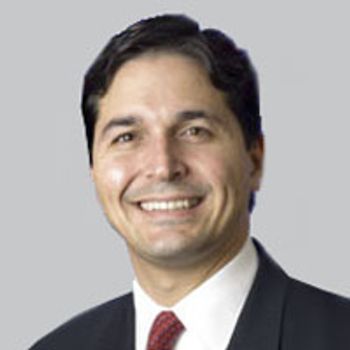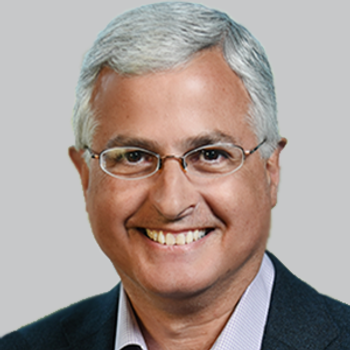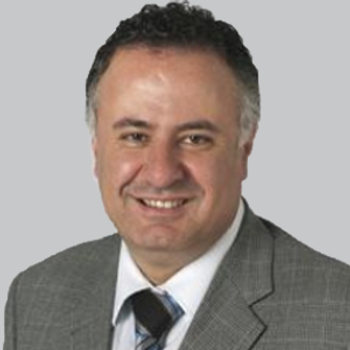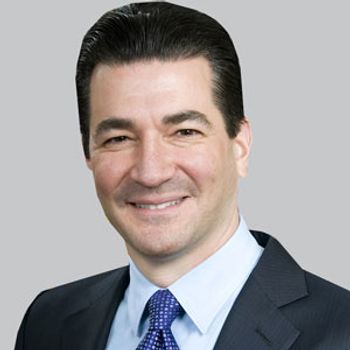
The David M. Levy Professor of Neurology and director of the Center for Health and Technology at the University of Rochester Medical Center spoke about the projection for the future and what could be done to mitigate it.

Matt Hoffman, Editorial Director for NeurologyLive, has covered medical news for MJH Life Sciences, NeurologyLive’s parent company, since 2017. He executive produces the NeurologyLive Mind Moments® podcast, and hosted the Medical World News show Deep Dive. Follow him on Twitter @byMattHoffman or email him at [email protected]

The David M. Levy Professor of Neurology and director of the Center for Health and Technology at the University of Rochester Medical Center spoke about the projection for the future and what could be done to mitigate it.

The regulatory agency determined that it was unable to approve the treatment in its present form, requesting additional information and analyses but no additional clinical studies.

The Independent Monitoring Committee’s interim analysis suggested that the treatment was unlikely to meet the trials’ primary end point of change from baseline in Clinical Dementia Rating-Sum of Boxes score.

The model showed that sporadic Alzheimer cells differentiated in an accelerated fashion in early development, as well as irregularities in the REST protein.

Data has suggested that patients with multiple sclerosis who have withdrawn from treatment with fingolimod (Gilenya, Novartis) can safely be treated effectively with alemtuzumab (Lemtrada, Sanofi Genzyme) or rituximab (Rituxan, Genentech/Biogen).

Despite the non-significant differences between groups, a slight trend toward a dementia risk reduction has led to the Alzheimer’s Association providing funds for a follow-up extension trial, dubbed SPRINT-MIND 2.0.

The chief of the Division of Immunotherapy at the Northwestern University Feinberg School of Medicine discussed the results of the randomized clinical trial and the implications of this treatment in clinical practice.

The postgraduate epidemiology fellow at the Centers for Disease Control and Prevention discussed the data and what she and her colleagues found in their analyses of children with Tourette syndrome.

Nonmyeloablative hematopoietic stem cell transplantation showed less disease progression in relapsing multiple sclerosis patients after 1 year compared to a number of FDA-approved disease-modifying therapies.

This investigation has suggested that Porphyromonas gingivalis may be a driver of Alzheimer disease progression and that an investigational bacterial protease inhibitor may be able to prevent that sequence.

The novel myeloperoxidase inhibitor was previously licensed by AstraZeneca, but its development has since been taken over by Biohaven, which received IND acceptance from the FDA.

Axovant Sciences has announced that, in addition to receiving positive feedback from the FDA on its clinical development, it is expecting data from the first 2 patients dosed to read out in March 2019.

The regulatory agency has informed Cytokinetics that the use of the 6-minute walk test will be an acceptable efficacy outcome measure for the skeletal muscle troponin activator.

A planned phase 1/2 trial of the recombinant AAV5 vector treatment is expected to begin dosing patients in the second half of 2019.

The director of the Epilepsy Center at Cleveland Clinic spoke about the use of deep brain stimulation for the treatment of refractory epilepsy, and who the ideal candidate is for implantation.

Several network meta-analyses have suggested that ocrelizumab is superior or comparable in its efficacy and safety to the other 14 available disease-modifying therapies in treating relapsing multiple sclerosis.

The director of the University of Florida’s Tourette Association of America Southeast Regional Center of Excellence spoke about the potential targets for neuromodulation and the progress that has been made with DBS in Tourette.

A recent review of the ICER report on calcitonin gene-related peptide inhibitor monoclonal antibodies has suggested that due to their cost and comparative benefit to available treatments, they should be reserved as second-line treatments.

This is the first biomarker evidence that peripherally administered exenatide may both engage and normalize brain insulin signaling in association with the activation of Akt and mTOR cascades in Parkinson disease.

The executive director of the University of Rhode Island’s George & Anne Ryan Institute for Neuroscience spoke about the phase 1 trial and the years of research that led to it.

The director of Parkinson’s Disease and Movement Disorders Program at Henry Ford Hospital spoke about how improving levodopa delivery systems, among other advancements, has progressed the treatment of the disease.

The treatment was originally branded as Sabril (Lundbeck) and approved in August 2009 as monotherapy for infantile spasms. This generic formulation approval was granted by the agency to Teva Pharmaceuticals.

The American Headache Society President spoke with NeurologyLive about the recent AHS position statement on the use of migraine treatments in clinical practice

Patients with relapsing multiple sclerosis who are treated sooner rather than later with disease-modifying therapy have a lower risk of converting to secondary progressive disease.

The agency is anticipating upward of 200 INDs per year by 2020 and between 10 and 20 cell and gene therapy approvals per year by 2025.

The associate professor in the department of psychiatry at NYU Langone spoke about the relationship between slow-wave sleep disruption and Alzheimer disease.

A small trial has suggested that patients with myasthenia gravis and dysphagia are not properly assessed by the common clinical scales for these swallowing problems and their risk of silent aspiration.

The direct thrombin inhibitor is planned to be evaluated for its effect on the neurodegenerative disease in a trial of 40 to 60 patients with MCI and Alzheimer, led by researchers at the University of Rhode Island.

The guidance provided the society’s recommendations for the use of the newly approved calcitonin gene-related peptide monoclonal antibodies for the prevention of migraine, among other guidance points.

The Group Medical Director for Neuroscience at Genentech discussed the ORATORIO trial findings, as well as what the upcoming ORATORIO-HAND trial will evaluate.